Are you navigating the sometimes tricky waters of requesting accommodations for a disability? Crafting the perfect letter can make all the difference in ensuring your needs are met in school or at work. In this article, we offer a comprehensive template that you can personalize, making the process as smooth as possible. So, let's dive in and empower you to advocate for yourself effectively!
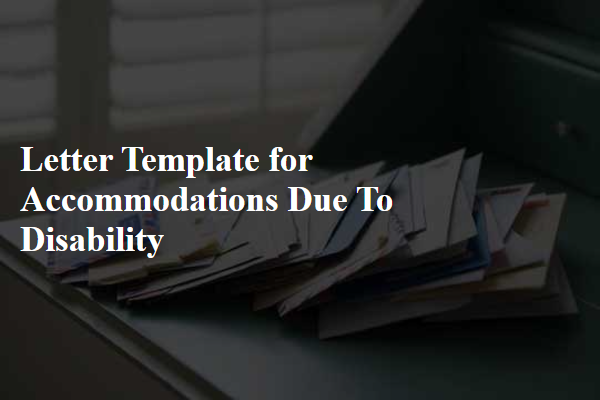
Clear explanation of the disability and its impact
An individual diagnosed with Attention Deficit Hyperactivity Disorder (ADHD) may face significant challenges in maintaining focus during long lectures or complex tasks. ADHD frequently manifests as difficulty sustaining attention, managing impulsivity, and organizing thoughts, particularly in an academic environment like a university classroom. This condition may hinder the ability to take accurate notes while simultaneously absorbing verbal information, leading to incomplete understanding of course material. Additionally, traditional time constraints during exams can exacerbate anxiety levels, resulting in performance that does not truly reflect the individual's knowledge. Accommodations such as extended time for tests, use of digital note-taking devices, or a quiet environment for studying can significantly alleviate these challenges and enable equitable access to educational opportunities.
Specific accommodations requested
The importance of specific accommodations for individuals with disabilities cannot be overstated. Accessibility features such as wheelchair ramps, which comply with the Americans with Disabilities Act (ADA) guidelines, ensure equal access to public buildings. Furthermore, providing assistive technology like screen readers for individuals with visual impairments significantly enhances their ability to engage with digital content. Accommodations could include flexible work hours for individuals managing chronic conditions, allowing them to attend medical appointments without job loss. Additionally, creating quiet spaces for those with sensory processing disorders reduces anxiety and boosts focus. Effective communication about these accommodations fosters an inclusive environment, benefiting everyone involved.
Supporting documentation from a healthcare provider
When requesting accommodations due to disability, it is essential to include supporting documentation from a healthcare provider. This documentation typically outlines the nature of the disability, including specific limitations and the recommended accommodations needed for effective participation in academic or workplace settings. For instance, a healthcare provider might detail a patient's diagnosed condition, such as attention-deficit/hyperactivity disorder (ADHD), which may hinder concentration in noisy environments. They could specify accommodations like extended test time or a quiet space in which to work. The letter should also highlight the impact of the disability on daily functioning, thereby reinforcing the necessity for adjustments that facilitate equal opportunities. This comprehensive approach ensures that institutions can understand and appropriately address the individual's unique needs.
Legal references to disability rights and protections
Individuals with disabilities are protected under the Americans with Disabilities Act (ADA), which mandates reasonable accommodations in various settings, including workplaces and educational institutions. The Rehabilitation Act of 1973, particularly Section 504, also ensures that individuals with disabilities have equal access to programs and services receiving federal funding. In accordance with these laws, reasonable modifications may include adjustments to work schedules, provision of assistive technologies, or alterations to physical environments to facilitate effective communication. Organizations must engage in an interactive process to determine necessary accommodations while ensuring nondiscrimination and equal opportunities for individuals with disabilities.
Contact information for follow-up discussions
Disability accommodations in educational settings often involve clear communication between students and institutions. Students may require various support services tailored to specific needs, such as extended testing time or accessible classroom environments. Coordination efforts typically include the Office of Disability Services within the institution, which can be reached via email or phone for thorough discussions regarding individual requirements. Ensuring that contact information is readily available allows for effective follow-up and clarification of accommodations, ensuring students receive the necessary assistance. Effective communication also plays a crucial role in creating inclusive learning experiences that enhance academic success.
Letter Template For Accommodations Due To Disability Samples
Letter template of request for workplace accommodations due to disability.
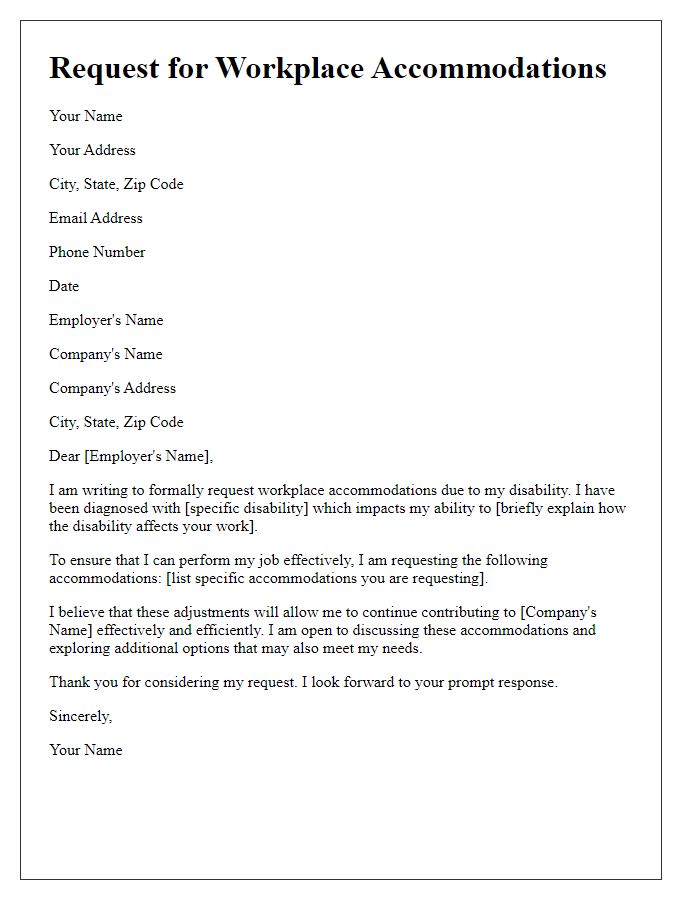
Letter template of application for educational accommodations for disability.
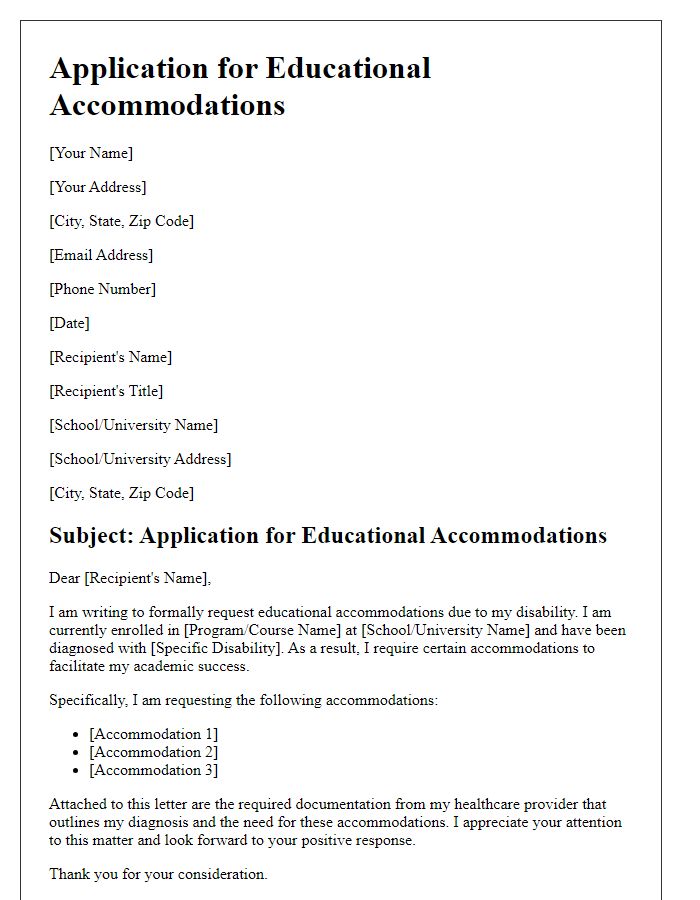
Letter template of formal request for reasonable adjustments for disability in housing.
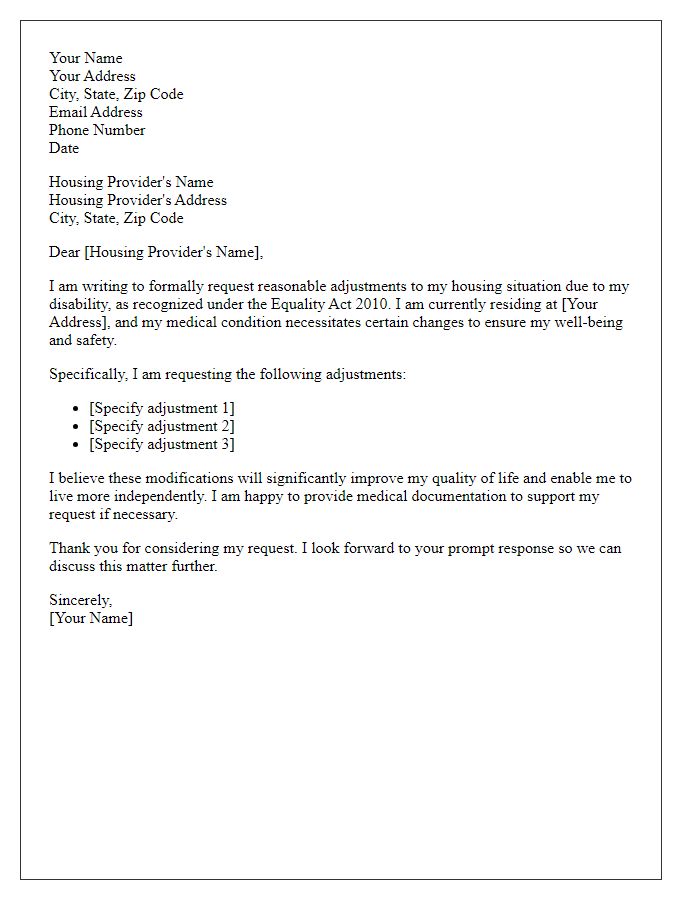
Letter template of communication for disability accommodation needs in a public service.
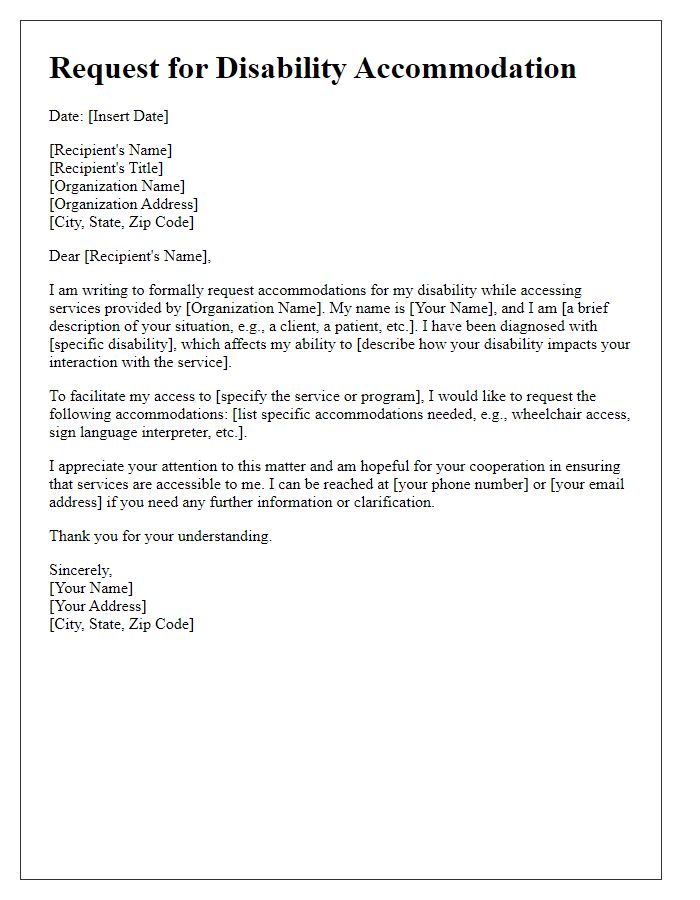
Letter template of request for health-related accommodations in a professional setting.
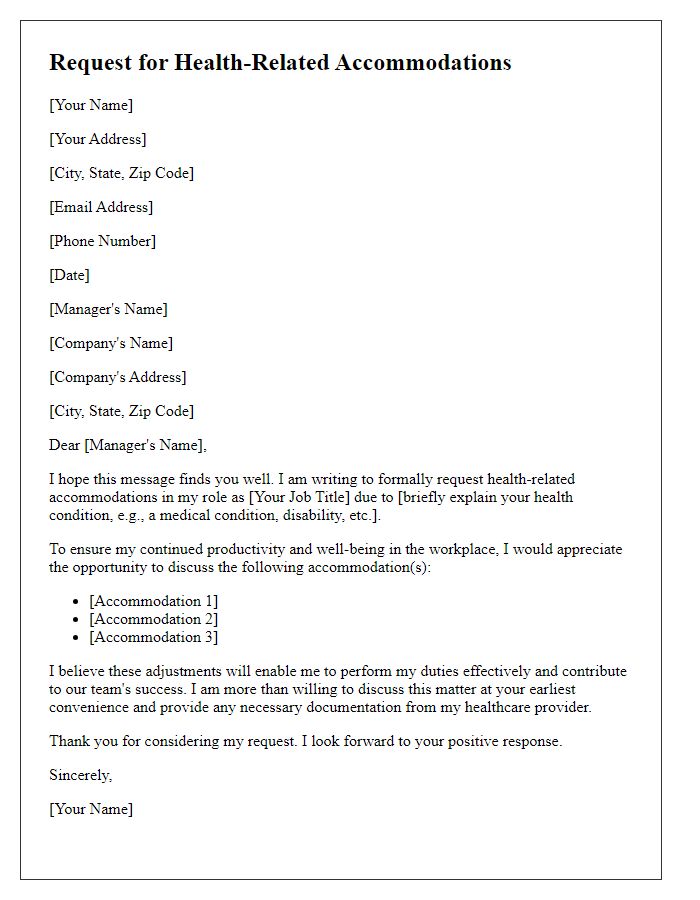
Letter template of notification to an academic institution for disability accommodations.
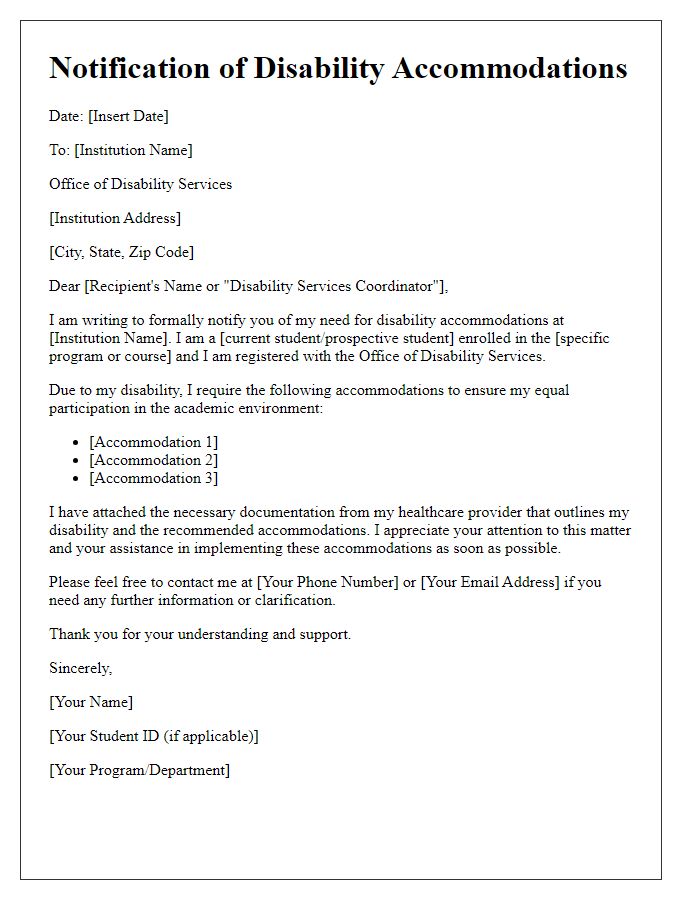
Letter template of inquiry about available support services for disability accommodations.
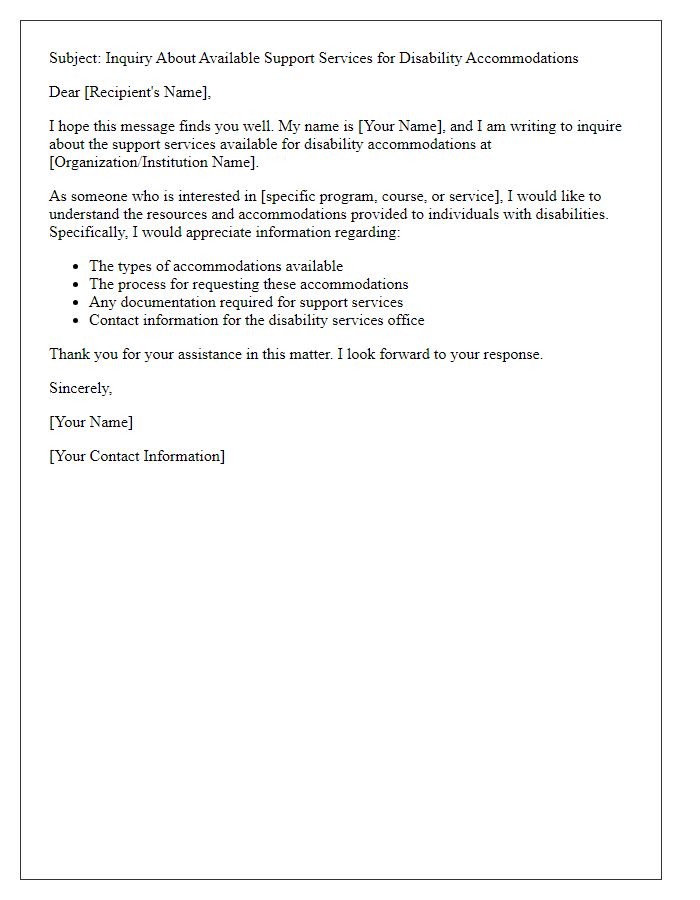
Letter template of an appeal for denied accommodation requests due to disability.
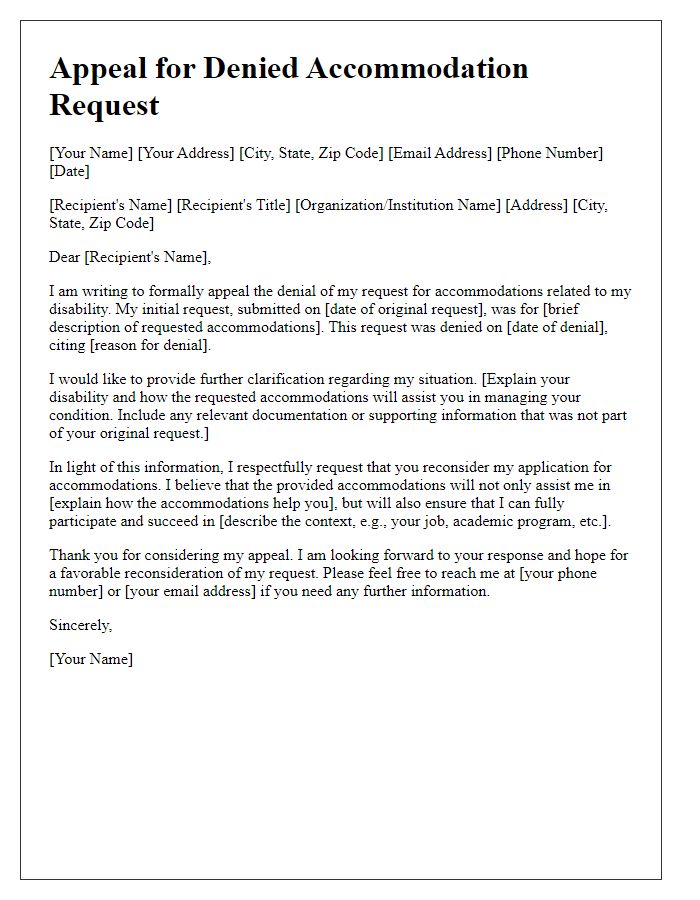
Letter template of follow-up regarding disability accommodation arrangements.
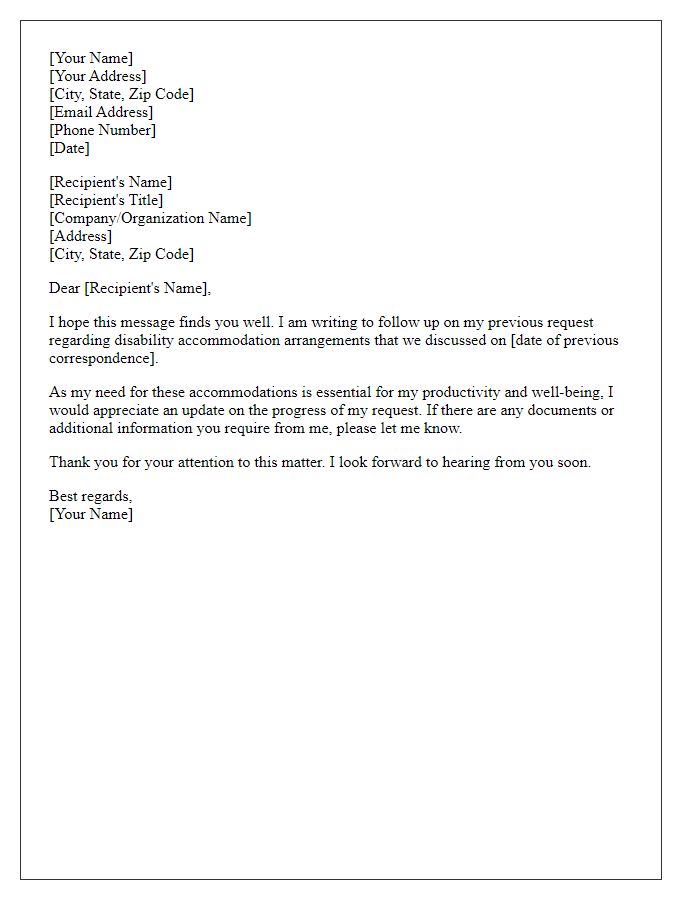

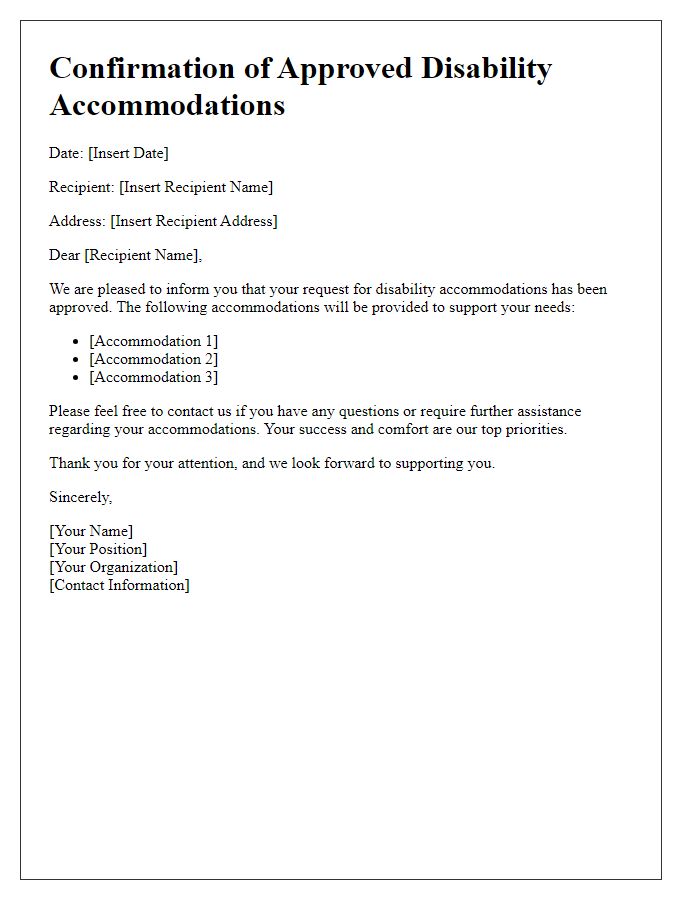


Comments